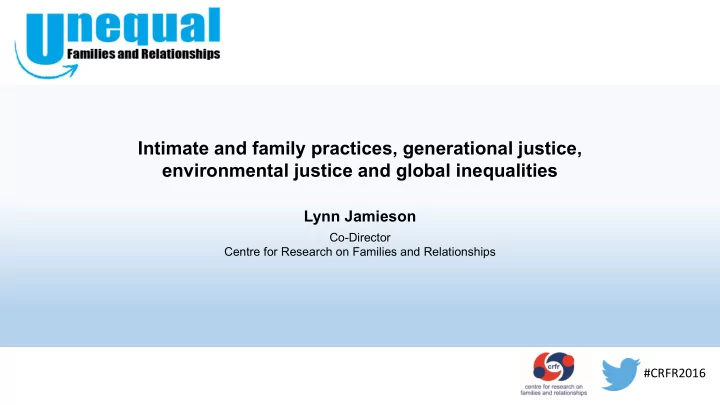

Intimate and family practices, generational justice, environmental justice and global inequalities Lynn Jamieson Co-Director Centre for Research on Families and Relationships #CRFR2016
Environmental justice Intergenerational justice • Climate change globalizes and radicalizes social inequality; it exacerbates inequalities of rich and poor, core and periphery, and at the same time dissolves them in the face of a common threat to humanity (Beck, 2010, 165) • Development that meets the needs of current generations without compromising the ability of future generations to meet their own needs (widely used definition of sustainable development adopted by the Brundtland report, WCED, 1987, 45) #CRFR2016
Metric tons of carbon per person per year 2011-15 (World Bank) 18 16 14 12 10 8 6 4 2 0 #CRFR2016
House of Lords European Union Committee 10th Report of Session 2013 – 14: Consumers in industrialised countries waste almost as much food as the entire net food production of sub-Saharan Africa. The global carbon footprint of wasted food has been estimated as more than twice the total greenhouse gas emissions of all road transportation in the United States (US) #CRFR2016
Amoral Familism Banfield, E.C. 1958. The moral basis of a backward society . New York: The Free Press. #CRFR2016
World Families ‘persons with frontier transcending experiences and possibilities of activity are much more likely to develop cosmopolitan attitudes to foreigners. In other words, the experience of global interdependencies and active interaction across borders favours the readiness and capacity to see through others’ eyes. The fixation on the nation -state is slackening’ (Beck 2010, 170). #CRFR2016
Recommend
More recommend